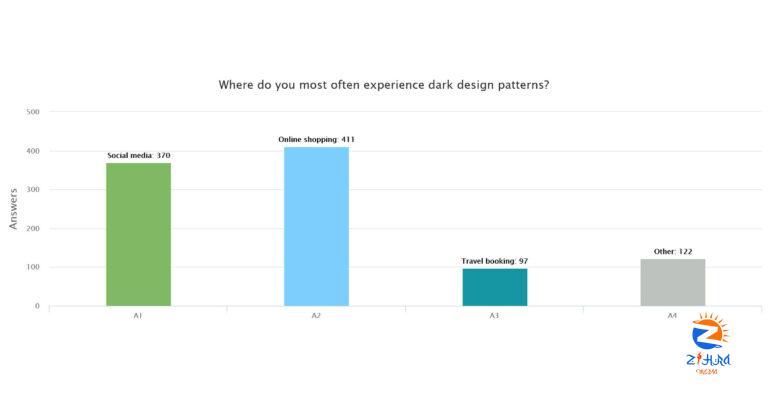
[ad_1]
The market-leading customer insights platform wants to empower designers in the face of dark design patterns, which are costing online shoppers and eroding trust among social media users.
SAN FRANCISCO and SYDNEY, Dec. 14, 2023 /PRNewswire-PRWeb/ — Dovetail, the leading customer research platform, has revealed the results of its latest research study, which measured the negative impact dark design patterns continue to have on online consumers and social media users. The study, which surveyed 1,000 e-commerce and social media users between the ages of 18 and 54, shows that despite regulatory efforts and the best efforts of most designers, dark design is still present in tactics such as false count-down animations, highly-charged wording, or even roadblocks to cheaper purchases.
Dovetail’s research shows that dark design is undoubtedly causing financial loss for customers. Nearly 63% of the survey respondents said that they’d had to actively ‘deselect’ supplementary products or services that were added automatically during checkout. A further 62% revealed that they had been intentionally guided with designs such as brightly-colored buttons toward more expensive products as they shopped online.
According to Dovetail founder and CEO Benjamin Humphrey, the ongoing application of dark design patterns across well-known brands and social media is only serving to erode the trust of those who engage in e-commerce and use social media services. This is evident in the survey finding that shows that nearly 56% of respondents said they had lost trust in a website or social media platform because of its dark or manipulative design patterns. Humphrey’s company wants to empower designers to advocate for better designs based on customer feedback:
“Deceptive dark design patterns are nothing new, but the problem is that dark design is infinitely more clever as the stakes get higher: what was once a nuisance on an off-the-beaten-track user experience, is now a gamble on privacy, data sharing, and high-stakes unintended financial consequences. We’re on a mission to empower designers, call out dark design, and stand up for the customer through informed design. We are very lucky to be working with companies that are true ambassadors of responsible, sustainable user experience design, driven by honest, effective customer research. The combination is creating products and services that people love, and, more importantly, building long-term trust and loyalty among these brands.”
Humphrey says that the stark reality for brands using dark design partners will be loss of revenue. The survey findings back up his stance, showing that over 43% of online shoppers had stopped buying from an online retailer due to dark design patterns. While online shopping emerged as the worst offender for dark design – 41% said it was where they most often experienced dark design patterns – social media also ranked high, with 37% of respondents saying it was the most frequent offender.
Critically, over 40% of respondents revealed that they had experienced unplanned financial consequences due to dark design patterns. This included clicking ‘yes’ to purchase more expensive items when cheaper options were made insufficiently visible, or being rushed through purchases with prompts.
The underlying threat of running out of time, combined with perceived supply (‘last one left’) and demand (‘most popular’) is clearly a tactic used by businesses online. Over 65% of Internet users in the study indicated that they had been rushed through an online transaction by notifications urging them to hurry up due to limited supply. This includes transactions on online travel sites, such as airline seat booking.
The study found not everyone encounters dark design daily – in fact, only 40% said they encounter it ‘frequently’ or ‘often.’ However, it’s clear that the victims of dark design are annoyed, with 41.30% saying they agreed with the statement ‘I can’t stand it, and companies need to stop it,’ and a further 43.60% agreeing with the statement ‘I’m irritated.’
In the United States, the Federal Trade Commission (FTC) has taken action against companies using deceptive dark patterns in the past. They can investigate and enforce actions against businesses that engage in deceptive practices. In September 2022, the FTC announced a $520 million settlement with video gaming giant Epic Games over allegations that it had deceived users into making unintentional purchases.
About Dovetail:
Dovetail’s mission is to enable the world to create better products and services through deep customer understanding. We empower 10,000 teams, from within agencies to universities to Fortune 100 companies, to make sense of their customer research in one collaborative and powerful customer insights platform. Founded in 2017 by Benjamin Humphrey and Bradley Ayers, Dovetail has 100+ employees across offices in Sydney and San Francisco. For more, visit dovetail.com.
Media Contact
Oluwatomi Lawal, Dovetail, 44 07414635256, [email protected], https://dovetail.com/
SOURCE Dovetail

[ad_2]